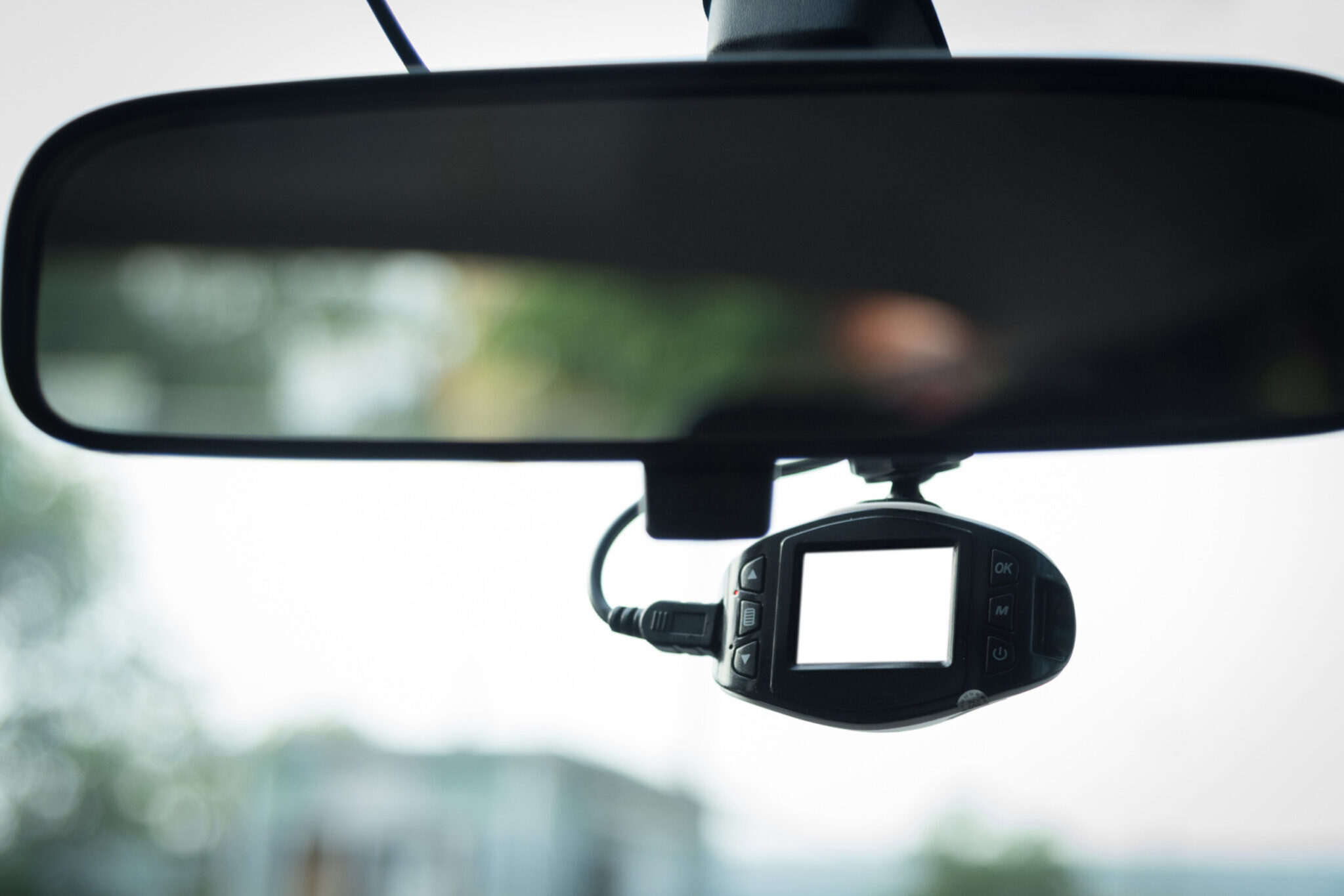Dash cams, small video cameras typically mounted on the windshield or dashboard, have gained popularity among Oklahoma drivers. These devices offer several benefits, including recording evidence in accidents, deterring traffic violations, and capturing scenic drives. However, using dash cams raises questions about their legality and the associated regulations in Oklahoma. This article will clarify dash cam laws, ensuring drivers understand their rights and responsibilities when using these devices throughout cities like Oklahoma City, Tulsa, Norman, and beyond.
Can I Use a Dash Cam in Oklahoma?
Yes, dash cams are generally legal to use in Oklahoma. However, there are specific restrictions regarding their placement on your vehicle to ensure driver safety and visibility are not compromised.
Restrictions on Dash Cam Placement
Oklahoma law places crucial limitations on where you can mount your dash cam. The primary rule is outlined in Oklahoma Statutes Title 47, Section 12-404(C):
“No person shall drive any motor vehicle with any sign, poster, or other nontransparent material upon the front windshield, side wings, or side or rear windows of such vehicle other than a certificate or other paper required to be so displayed by law or authorized by the State Commissioner of Public Safety.”
This law clearly prohibits mounting dash cams directly on the windshield, as it could obstruct the driver’s view. However, alternatives are available. In Oklahoma, you can legally place dash cams:
- On the dashboard: If your dash cam is secure and doesn’t obstruct your line of sight, it can be mounted on the dashboard.
- Near the rearview mirror: Some dash cams are designed to attach close to the rearview mirror without hindering visibility.
Audio Recording Considerations
Oklahoma is a “one-party consent” state when it comes to audio recordings. This means you can legally record conversations you are a part of without the other person’s explicit consent. However, secretly recording conversations you are not directly involved in is illegal. Be mindful of these laws if your dash cam includes audio recording capabilities.
Admissibility of Dash Cam Footage in Court
Dash cam footage can be incredibly valuable in court proceedings, particularly in traffic accident cases. Oklahoma courts generally consider dash cam footage admissible evidence. However, factors determining its admissibility include:
- Relevance: The footage must be directly relevant to the issue at hand.
- Authenticity: The footage must be proven to be an unaltered original recording from your dash cam.
- Compliance with Oklahoma laws: The way your footage was obtained must adhere to the state’s dashcam laws regarding placement and audio recording.
Benefits of Using a Dash Cam in Oklahoma
Investing in a dash cam provides numerous benefits for Oklahoma drivers:
- Accident Evidence: Dashcams offer concrete visual evidence in case of a traffic accident, helping determine fault and streamlining insurance claims processes.
- Protection against Fraud: Footage can protect you against false accusations or insurance fraud attempts, particularly in cities with denser traffic.
- Theft Deterrence: A visible dash cam may deter criminals from targeting your vehicle.
- Monitoring Driving Habits: Dash cams can help monitor your own driving habits or those of teen drivers, leading to safer road practices.
Additional Tips and Considerations
- Choose a Reputable Brand: Invest in a reliable dash cam to ensure high-quality footage and dependability.
- Check Installation Regularly: Ensure your dash cam remains securely mounted and doesn’t obstruct your view while driving in and around Oklahoma City, Tulsa, or other areas.
- Review Footage: Periodically review your dashcam footage to ensure it’s recording correctly.
- Know Your Rights: If stopped by law enforcement, be aware of your rights regarding dash cam footage.
- Privacy Concerns: Be respectful of others’ privacy; avoid recording on private property or focusing the camera directly into other vehicles unnecessarily.
Addressing Common Questions and Concerns
Here are some frequently asked questions about dash cam use in Oklahoma:
- Can I record police interactions with my dash cam? Yes, you have the right to record your interactions with police officers in Oklahoma, but it’s advisable to inform them that you are recording.
- What happens if my dash cam accidentally captures footage of another accident? If you witness an accident, offering your dash cam footage to law enforcement or the affected parties could help determine what happened.
- Can my dash cam footage be used against me? While dash cam footage primarily serves to protect you, it’s possible that the footage could reveal unintentional traffic violations on your part.
The Importance of Responsible Dash Cam Use
While dash cams are beneficial tools, it’s imperative to use them responsibly to protect yourself and others on Oklahoma’s roadways. Here are a few additional pointers:
- Avoid Distraction: Don’t interact with your dash cam while driving. Set it up before you start the car and let it function without further manipulation.
- Respect Traffic Laws: A dash cam does not give you the right to ignore traffic rules or drive recklessly. Always prioritize safety over capturing footage.
- Manage Your Footage: Delete old footage regularly to free up space and protect your privacy.
Sources
- Graves McLain Law Firm – “Is Dashcam Footage Admissible in Court?” https://gravesmclain.com/car-accidents/dashcam-footage-court/
- Bryan Garrett Personal Injury Attorney – “The Benefits of Having a Dashcam in Oklahoma”: https://bgarrettlaw.com/the-benefits-of-having-a-dashcam-in-oklahoma/
Conclusion
Dash cams offer valuable protection and peace of mind for Oklahoma drivers. Understanding Oklahoma’s specific regulations helps you use these devices safely and legally. By adhering to the guidelines outlined in this article, you can maximize the benefits of your dash cam while driving in Oklahoma City, Tulsa, Norman, and across the state.
Disclaimer: This article is for informational purposes only. It does not constitute legal advice. Always consult with a qualified attorney for any legal matters regarding dash cams or traffic laws in Oklahoma.



